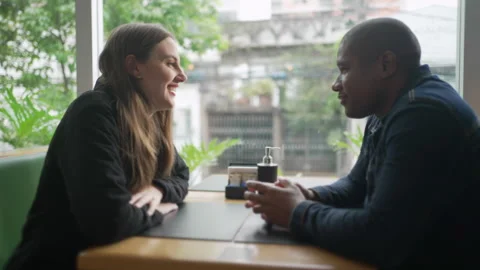Social Psychology Exam 1 - Takooshian
1/39
There's no tags or description
Looks like no tags are added yet.
Name | Mastery | Learn | Test | Matching | Spaced |
|---|
No study sessions yet.
40 Terms
Psychology
The science of behavior
Social Psychology (narrow)
How others influence the individual
Social Psychology (broad)
How external factors (environment, culture, religion, economy, etc.) influence the individual
Past vs. History
Past (or antiquity): since humans first started questioning the individual and social groups. Includes Plato, Aristotle, etc. Has been done for a very long time.
History: when science was introduced and social psychology became a field. Relatively recent.
Allport’s quote about social psych
“social psychology has a long past but a short history”
Human nature
Humans at their essence/core. Good or bad? Moral or immoral?
1776 USA vs 1789 France
1776 USA: based on the idea that humans are flawed and need checks and balances (Hobbes)
1789 France: based on the idea that humans are good (“noble savages”) but society ruins them (Rousseau)
Marxism
1800s: a lot of bad in society is caused by greed; communism creates a utopia because it removes greed
1917+ : “progressive” socialists, such as Hitler, Mao, andn Stalin, emerged.
1989: Tianemmen Square in China - crushed a student revolution, led to several losses
20th C: Huxley’s Brave New World about conformity, Orwell’s 1984 about obedience
1884 Galton
Proposed the first social psych experiment
Inclination: when people lean towards each other, they are attracted to each other and vice-versa

1897 Triplett
FIRST to execute and publish a social psychology experiment! Father of soc psych
Kids wounding string alone vs together
Social facilitation: people perform better when they are in groups (e.g. study group)
Social inhibition: people perform worse when they are in groups (e.g. stage fright)
1965 Zajonc
90% of our behavior is social facilitation (improved performance when in group)
10% of our behavior is social inhibition (weakened performance when in group; due to pressure)
Simple vs. complex and well-learnt vs. poorly learnt → factors that impact behavior facilitation/inhibition
1908 Ross/McDougal textbooks
First textbooks in social psychology!
William McDougal: psychologist
Edward Alsworth: sociologist
APA today
American Psychological Association
54 divisions; specialization
JASP 1925
Journal of Applied Social Psychology
articles based on social behavior, personality
JPSP 1966
Journal of Personality and Social Psychology
Changed name from JASP to include personality to social behavior
Aronson’s examples
Asch’s experiment of conformity
Point out line that matches length of another line. When people were in groups that gave the wrong answers, most people also gave the wrong answers
Hindsight bias
When someone thinks they accurately predicted an event before it occurred
(“I knew it!!”)
“Crazy” / dispositional view
People who do crazy things aren’t necessarily crazy
We often tend to assign particular personality traits to explain behavior of others
(e.g. “Maria never washes the dishes, she’s so lazy!”)
Dispositional view: people who behave a certain way are a certain way (e.g. people who do evil things are evil)
Social vs Abnormal psych
People used to think psychological abnormalities were caused by society, but they are often not.
Certain situations can cause people to behave abnormally
Social vs. Personality psych
Social: behavior comes from external factors
Personality: behavior comes from internal factors
Disposition
Natural tendencies of behavior, thoughts, etc.
SPSP
Society for Personality and Social Psychology
division of the APA
Situationism
When a person blames a situation or somebody else for their actions. Not responsible for their actions.
Ex: Milgram’s study of obedience
Psychological Social Psych (PSP)
How does an individual influence another individual?
Micro
Sociological Social Psych (SSP)
How does the group influence an individual?
Macro
E.g. Asch’s study of conformity
Universal v cultural psych
Universal: social psych that applies to everyone
Cultural: social psych that depends on culture
WEIRD
Westernized Educated Industrialized Rich Democratic
Most psych studies are from WEIRD countries → do not represent whole world population
Positive Social Psychology
Lopez ‘03
Study of positive things in psych, such as attraction, friendship, forgiveness, etc.
Behavioral v Cognitive Psych
Behavioral: studies how people behave
Cognitive: studies how people think (surveys, questionnaires, etc)
Basic v Applied psych
Basic: study for the sake of curiosity
Applied: study to solve a particular issue
Weather soc Psych
How weather impacts our social behavior and cognition
(e.g. more crimes occur in the summer)
Climate soc psych
Psych can be used to encourage people to fight climate change by adopting certain behaviors (e.g. taking the bus, recycling, etc.)
Lighting soc psych
How lighting influences behavior
Time soc psych
How time affects behavior (e.g. school start time)
Faith SP
How faith influences behavior/experience
E.g. Christians who survived hurricane had a more positive outlook than atheist survivors
Neuro SP
Behavior is wired in the brain
The social brain → Aronson
Innate
Characteristics of the social brain
not rational, biased
Confirmation bias
We tend to look for evidence that matches with what we already believe in
Egocentric bias
We rely more on our experiences/perspectives than on others’
Negativity bias
We are attracted to negative things (bad news, etc.) and often forget/neglect the positive side